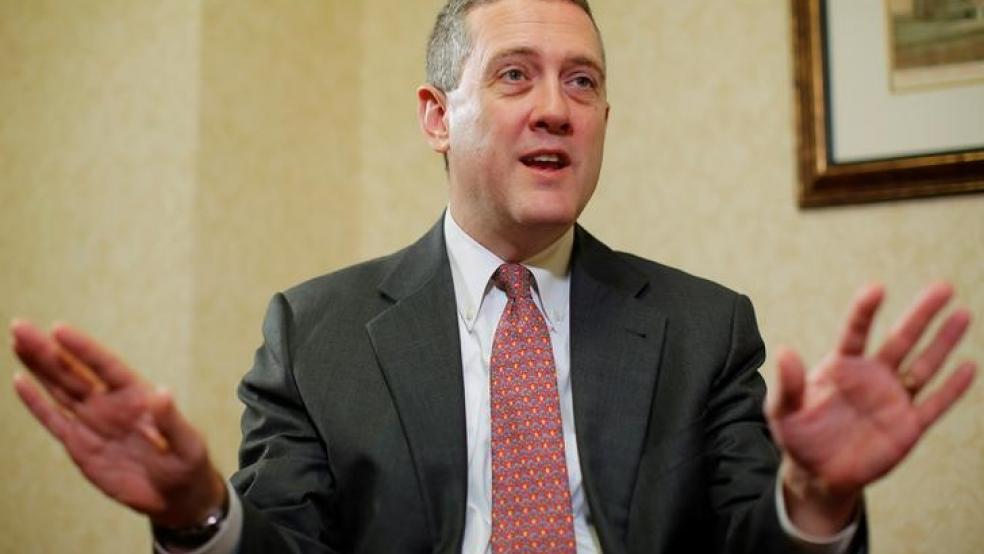A recent dip in inflation and inflation expectations means the Fed may not make as much progress as expected toward its inflation target, and at a time when risks are increasing that political gridlock in Washington will continue.
Expectations that tax, regulatory and other changes may boost growth have buoyed business confidence and markets since the start of the year, but are looking less likely as the Trump administration faces continued controversy.Bullard said that recent events in Washington, on their own, have not changed his expectations for an economy anticipated to slog along at a 2 percent annual growth rate. But they have coincided with weaker inflation, and a dip in long-term bond yields that seem counter to the Fed's faith it should continue to raise interest rates, Bullard said.Inflation readings "are weak, they've come down and they are too low for the Fed to reach its inflation target," Bullard said in comments at the Association for Corporate Growth. "They've gone in the wrong direction and a little bit too sharply for comfort."The Fed is expected to raise interest rates at its June meeting. Bullard, who currently does not have a vote on the central bank's rate setting committee, said he would not object to that move. However, he feels his colleagues risk being "overly aggressive" if they move rates any higher until it is clear that inflation will rebound. Since the Fed raised rates in March, inflation data has dipped and so have long-term bond yields, the opposite of what would happen if investors and the public felt the economy was going to continue on a strong enough course to justify further rate increases. In their most recent set of projections central bank officials said they foresaw raising rates two more times over the course of this year. The political climate in Washington has also deteriorated, likely reducing the chance that major tax or other changes will be approved quickly with the Trump administration now facing a ramped-up investigation over allegations about its campaign's ties to Russia. Bullard said he did not think events in Washington have yet had an appreciable impact on the economy, but markets should prepare for continued political volatility.Gridlock on major policy issues has become the norm, Bullard said, so if that continues it will not change the outlook."The Trump campaign was unusual, unconventional ... and you expected an unconventional president. You have more volatility than you are used to in the policy sphere," said Bullard. "At least for 2017 I don't see this as having particular implications that I can draw at this point." (Reporting by Howard Schneider; Editing by Chizu Nomiyama)St. Louis Fed's Bullard says expected rate hikes 'aggressive'

Lucas Jackson



